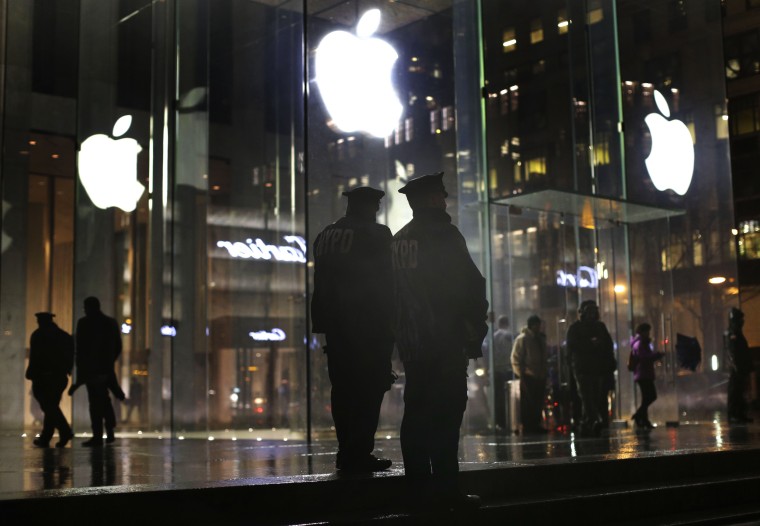Three Republican senators introduced a bill this week to codify "lawful access," a legal framework that would allow law enforcement to access encrypted digital devices with signed court orders.
Currently, federal and local governments working with third-party forensics companies are constantly battling tech companies in a game of cat and mouse, in which the government sometimes can access the data it seeks and sometimes cannot.
The bill's authors are Sens. Lindsey Graham of South Carolina, Tom Cotton of Arkansas and Marsha Blackburn of Tennessee.
"Tech companies' increasing reliance on encryption has turned their platforms into a new, lawless playground of criminal activity," Cotton said in a statement. "Criminals from child predators to terrorists are taking full advantage. This bill will ensure law enforcement can access encrypted material with a warrant based on probable cause and help put an end to the Wild West of crime on the Internet."
Apple and Google, the world's largest manufacturers of smartphone operating systems, declined to comment.
The bill, which was submitted Tuesday, appears to be a formal codification of what top judicial officials have sought for well over two decades: enhancing the government's ability to bust through strong encryption, which can make data on a cellphone or a computer almost unreadable to anyone who does not have the password to decrypt it.
"This is the full-frontal nuclear assault on encryption we've been fearing would come, but which no lawmaker previously had dared to put forth," emailed Riana Pfefferkorn, associate director of surveillance and cybersecurity at the Stanford Center for Internet and Society.
Download the NBC News app for breaking news and alerts
During the last year, Attorney General William Barr has given two major speeches advocating for such a position, and on Tuesday evening he lent his support to the bill. The roots of the government's pushback against widespread strong encryption date at least 25 years to the Clinton administration.
Law enforcement has long lambasted what it says are tech companies' preference of profits over protection from criminals.
In January, the FBI sent a letter demanding that Apple help unlock two iPhones belonging to Mohammed Saeed Alshamrani, the man believed to have carried out a shooting attack that killed three people at Naval Air Station Pensacola, Florida, in December.
At the time, Apple followed its normal protocol to assist the government but took no extraordinary steps to get into the iPhones.
Apple famously resisted a federal judge's order to re-engineer its own security to access data held on the phone once used by Syed Rizwan Farook, a terrorist who died in a shootout after the shootings that killed 14 people in San Bernardino, California, December 2015.
At least one Senate Democrat opposes the bill.
"This flawed bill puts a wig and a mustache on the same tired argument that pro-surveillance activists have been making since the 1990s," said Sen. Ron Wyden, D-Ore. "Year after year, the Justice Department and short-sighted politicians demand that companies weaken the encryption that keeps Americans safe from predators, scammers, criminals and hackers.
"They demand that every electronic device be designed with government backdoors, despite the fact that every reputable cybersecurity expert has warned that doing so will inevitably make it easier for bad guys to walk through," Wyden said.
The bill also would enable the attorney general to create a cash prize to promote more robust digital security while also providing access to the government when required.
Civil liberties advocates and cryptography experts say that what the government is seeking is technologically infeasible and that it reeks of desperation.
"This bill is the dream bill of everything that law enforcement has ever asked for, placed into a single document — it's really surprising," said Matthew Green, a computer science professor and cryptography expert at Johns Hopkins University. "It basically admits that they have no idea how to do it."
For years, many cryptography experts have said granting all of what the government wants would be tantamount to breaking encryption entirely — making all digital devices less secure for regular users.
"This bill is simply blind to reality," Andrew Crocker, a senior staff attorney at the Electronic Frontier Foundation, said in an email. "It is blind to the fact that as millions of us march in the streets and shelter in place, we've never been more dependent on secure communications and devices.
"It is blind to the expert consensus that there is no way to provide access to securely encrypted data without a backdoor, something that legislating a prize for a magical solution simply cannot change," he said.

